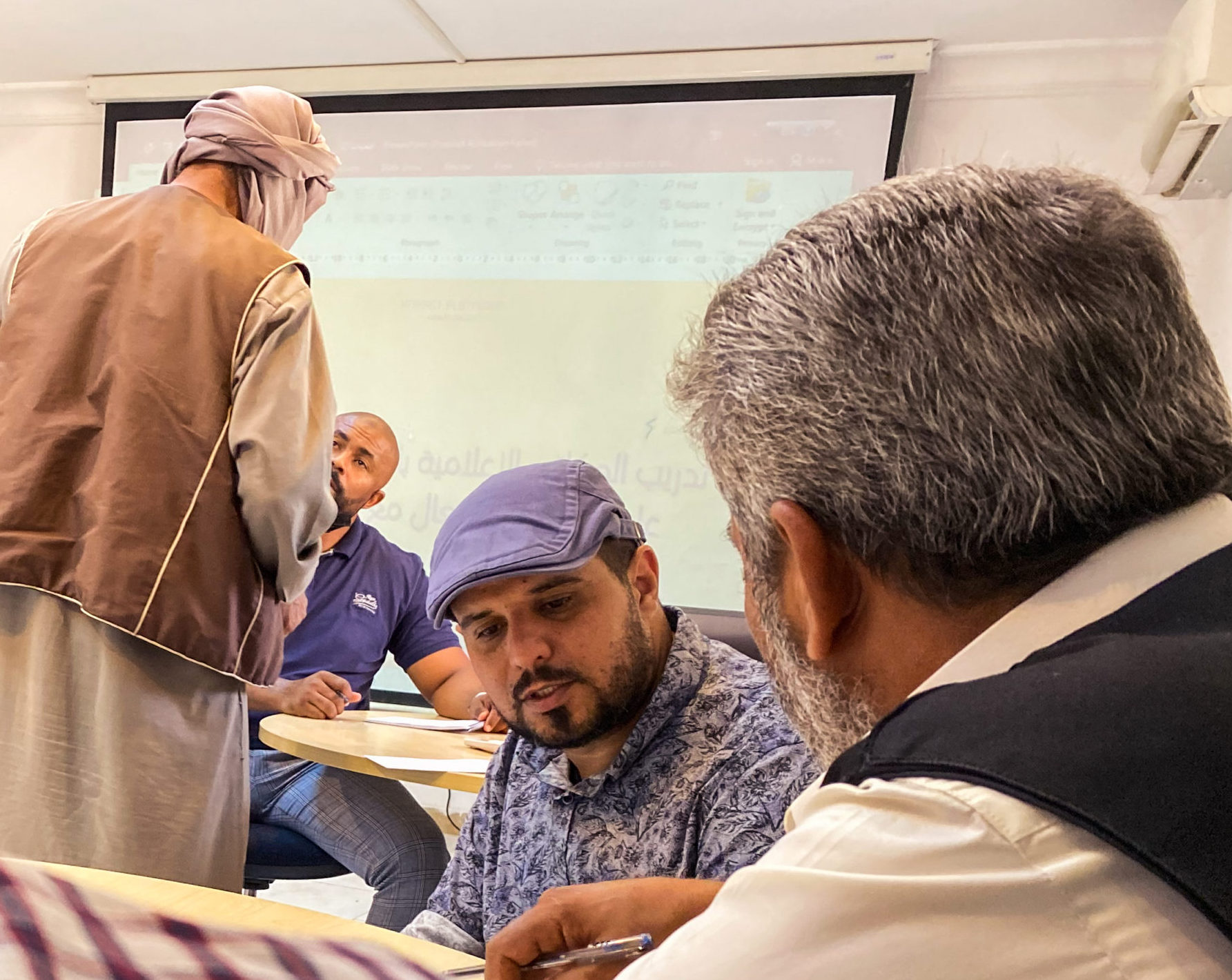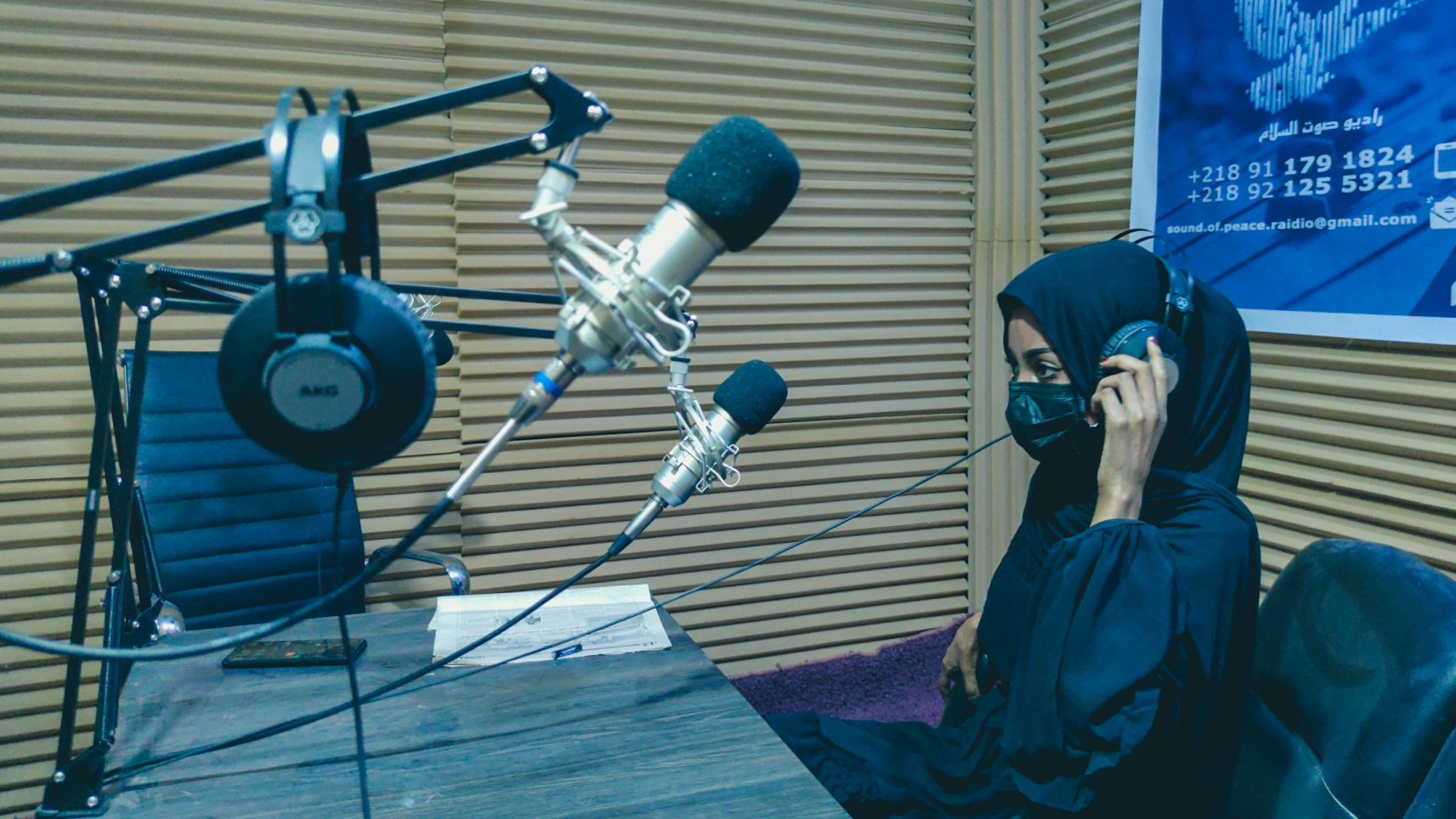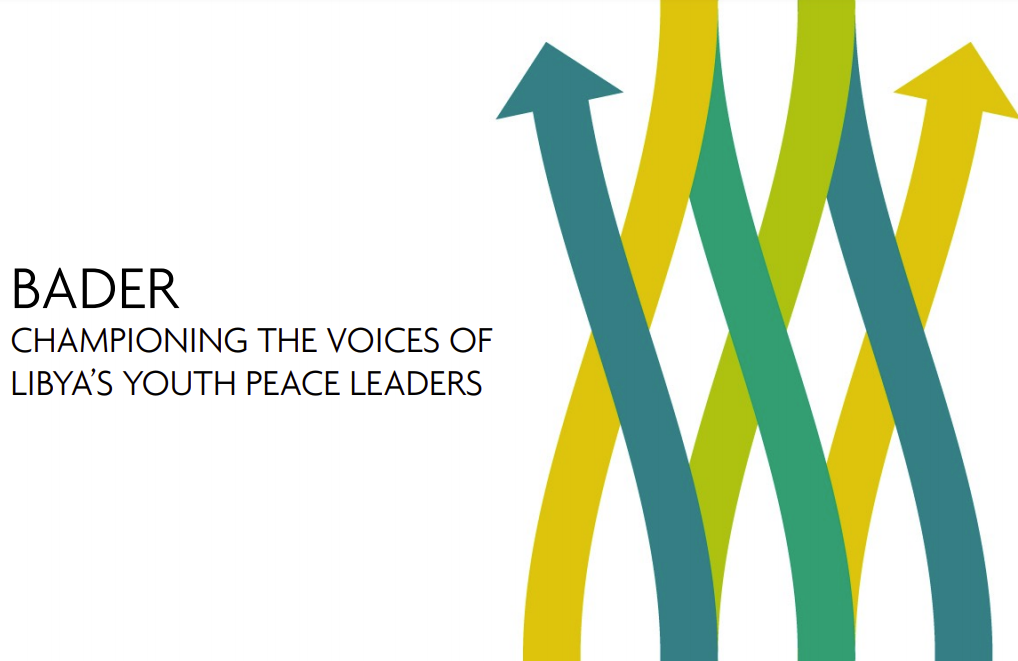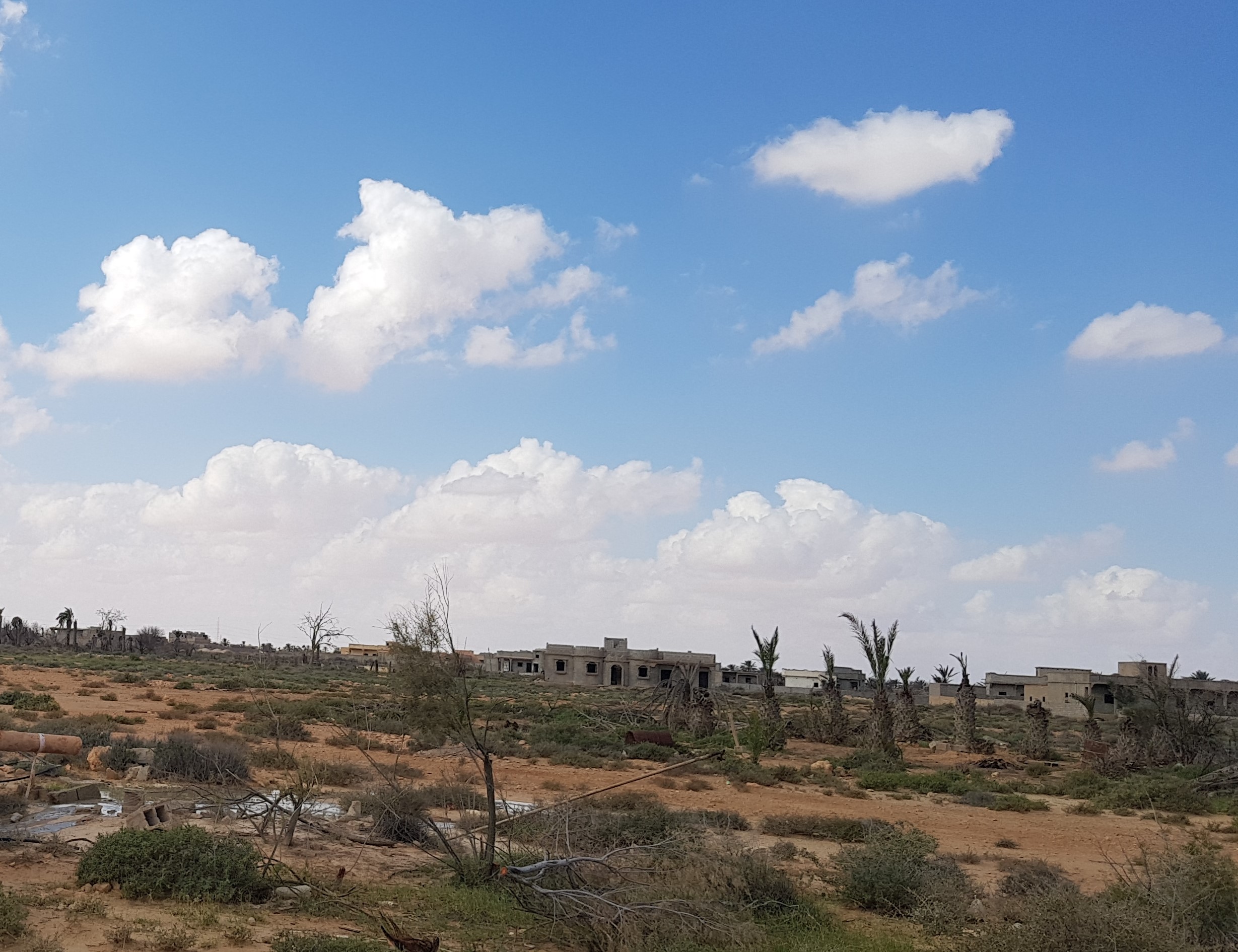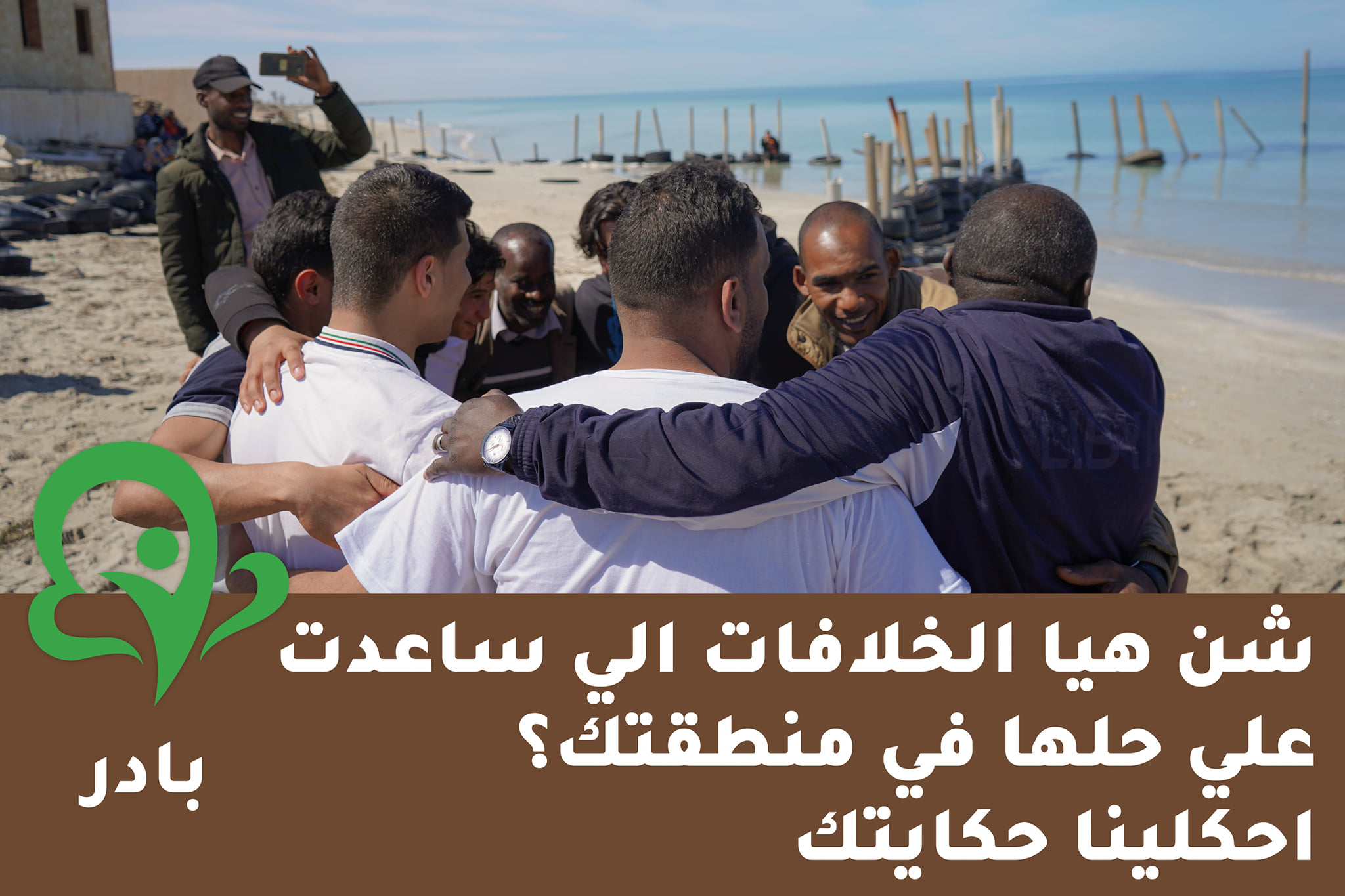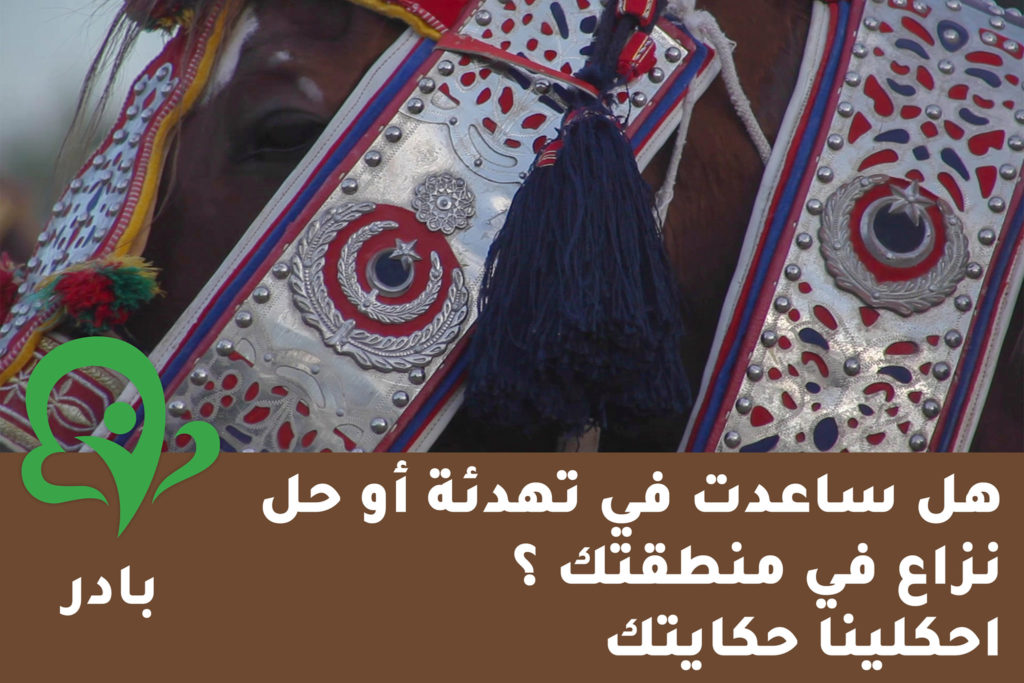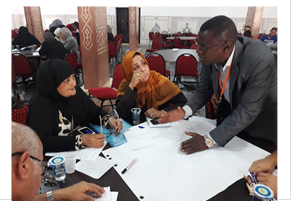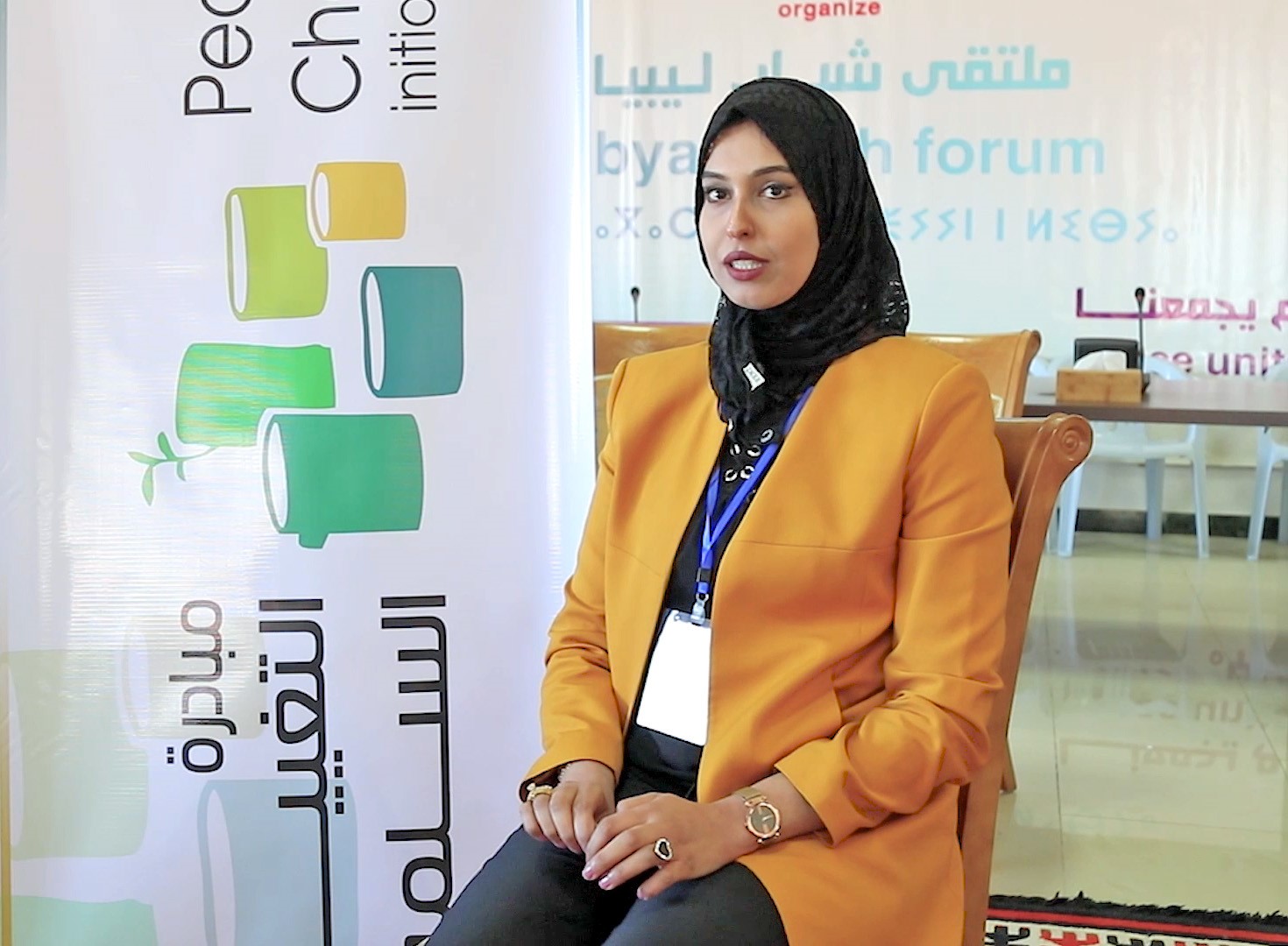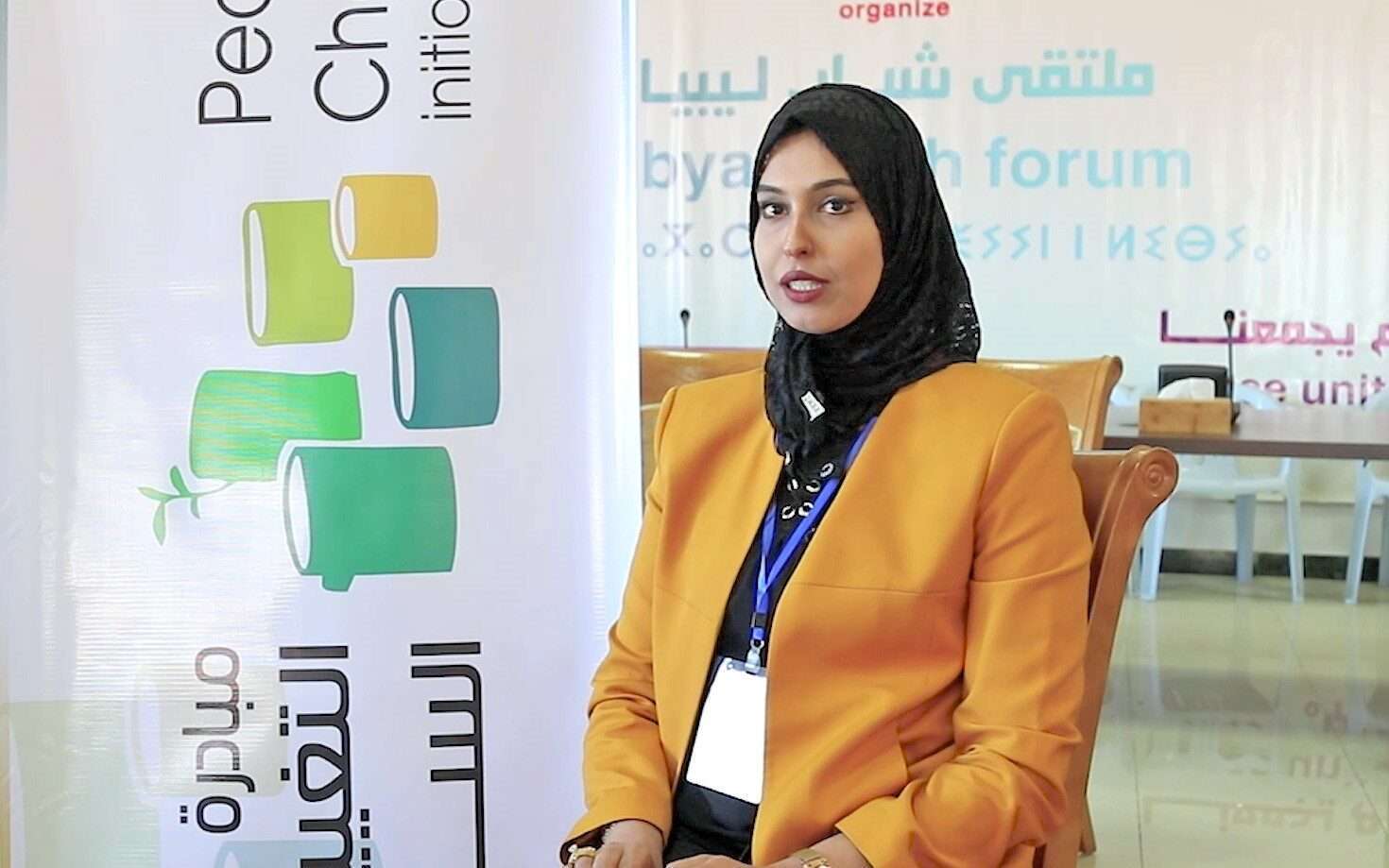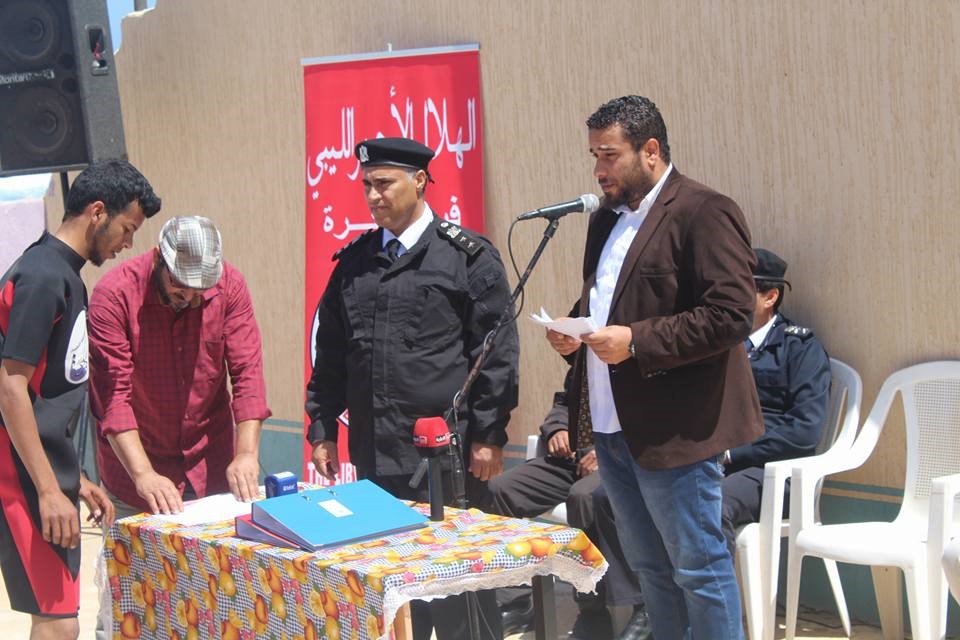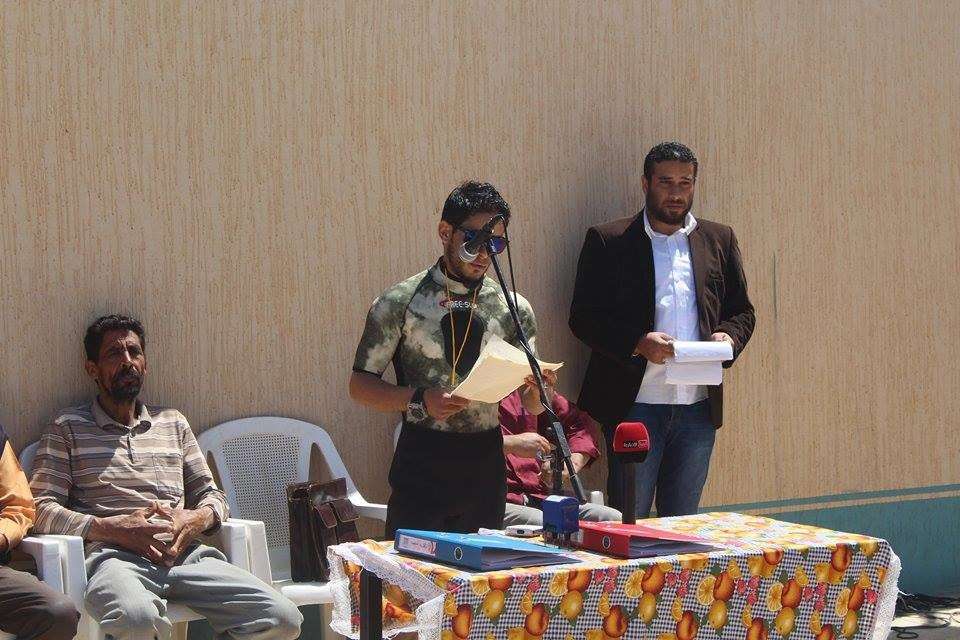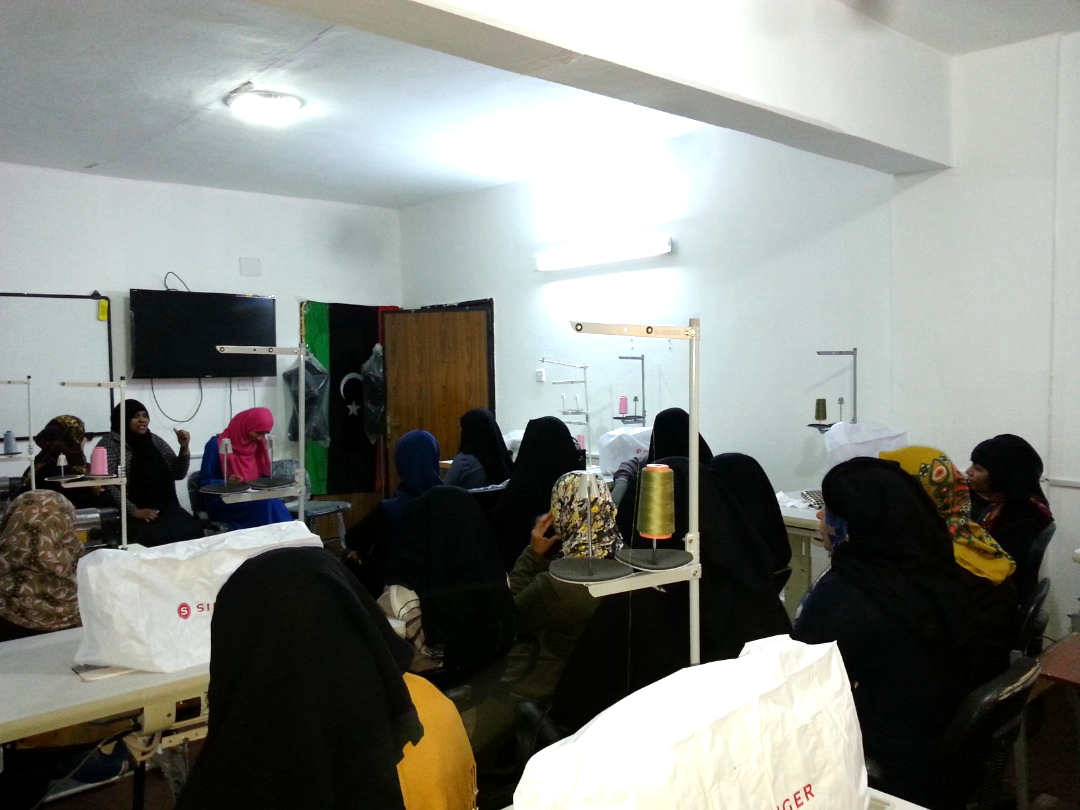
Ikram Mohamed Abdullah is the Ajdabiya Social Peace Partnership Public Relations Officer; she is a dynamic young woman who graduated from Ajdabiya University with a background in business and IT. She was invited to join the Ajdabiya Social Peace Partnership by the Head of the Partnership, who was impressed with her work in the community. The skills she has acquired through membership of the Social Peace Partnership have helped her both in conducting social peace initiatives and in her professional life.
Through the Social Peace Partnership, Ikram attended trainings on conflict analysis and conflict mitigation, strengthening her peacebuilding knowledge. She also participated in project management training, acquiring new skills in strategic planning and specifically SWOT analysis (strengths, weaknesses, opportunities, threats) which have helped her to fundraise for her University. Ikram said:
“Ajdabiya University relied on the national government for funding (because it is a public institution) but unfortunately funding was cut because of the political crisis; this occurred at a time when student exams were about to start. When I met with people from the University, we discussed how we might use SWOT analysis to advocate for more funds and using this tool, we were able to mobilise networks, which resulted in private companies donating resources so that the exams went ahead.”
Ikram is proud of the social peace initiative to renovate the Ajdabiya General Hospital. The Social Peace Partnership produced a list of eight potential projects, that were announced on local radio. Residents were asked to vote for their favourite project with 80 per cent going towards the hospital renovations (involving 10 bathrooms, the construction of a separate entrance for Accident and Emergency and the construction of a women’s area to improve safety and privacy). The project was completed to a high standard, in three weeks, with over thirty volunteers helping out on specific tasks, including painting and plumbing – and within the budget of 40,000 LYD.
Ikram has also played a key role in the Social Peace Partnership efforts to strengthen livelihood opportunities for the most vulnerable community members in Ajdabiya. To date, over 200 people, including many women and youth, have been provided with vocational skills. Ikram continues:
“Our sewing training project stands out to me, supporting women to earn an income. Selma, was a widow with five children who was struggling to make ends meet. She got a job as a cleaner with the Social Peace Partnership because her widow’s pension no longer covered her basic costs (due to inflation) and she fell into depression. Selma was invited to participate in the sewing workshop. She was very motivated and soon became the top student in the class. We gave her a sewing machine to take home so that she could start producing garments. She now works with a number of stores and supplies them with tailored pieces; she is slowly lifting herself and her family out of economic hardship.”
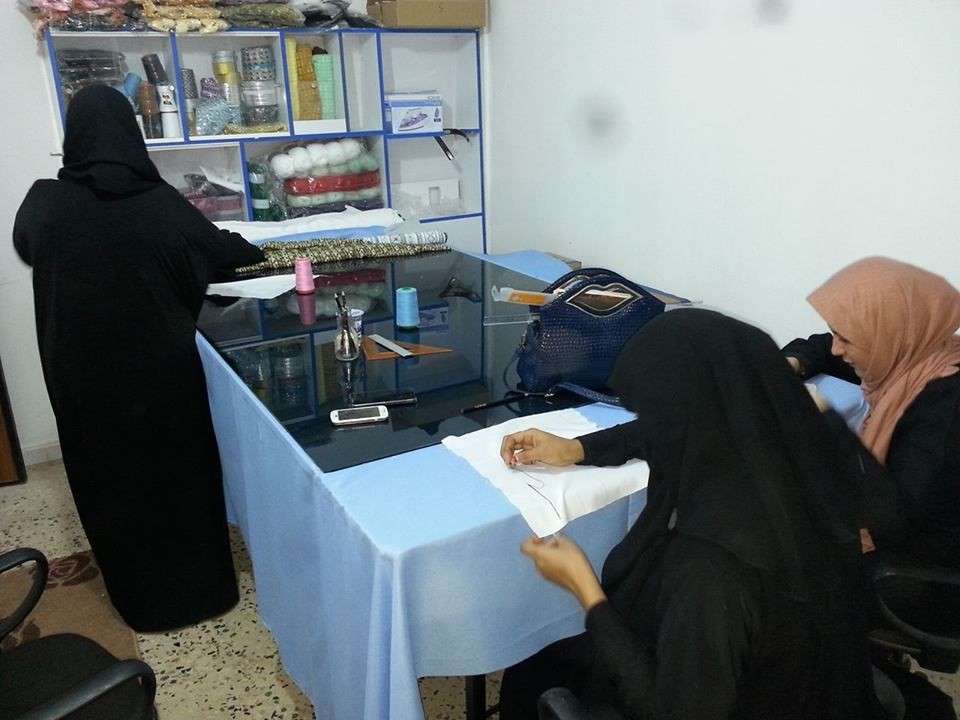
Ikram’s work with the Social Peace Partnership and civil society more broadly has made her even more determined to pursue ambitious projects.
“I want to make an impact and feel that I have achieved something important in my community. My work within the Social Peace Partnership has shown me that these projects matter to our society.”
She is particularly committed to continuing to support women in her community, so that they can play a more meaningful role and develop their potential.
“While women still face discrimination in our society, I believe that there is no obstacle too large that can prevent them from achieving their goals. We have the opportunity to take on positions as policymakers, to create real change.”

